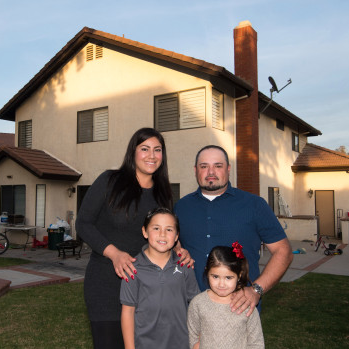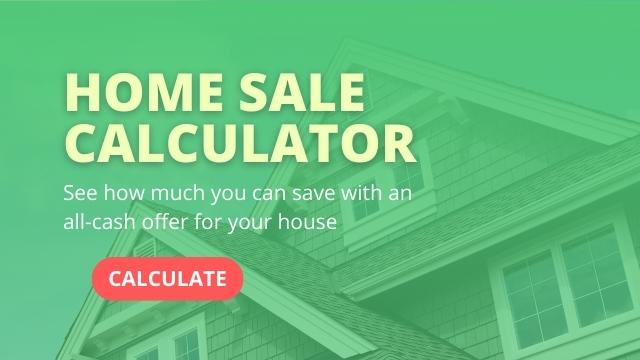Selling your home and curious how much it’ll cost? Learn about who pays closing costs and calculating your closing costs.
When calculating how much you will make on your home sale, you will need to calculate closing costs.
The numerous fees that fall under closing costs can add up to as much as 10 percent of your final sale. Luckily, most of these costs go to the buyers, while sellers are responsible for other fees like real estate agent commissions and repairs.
Sellers who miscalculate the costs that go into a home sale are in for a rude awakening. It’s crucial to understand all costs of a home sale prior to listing and closing escrow. Closing costs vary widely because of differences in procedures from state to state, but they are predictable.
Taking out agent commissions, sellers’ costs typically run between 1% and 3% of the home’s price. That also doesn’t include costs associated with getting your home ready to sell.
For example, you may have to pay to stage your home, which cost a median of $400 in 2019. If you do repairs or a complete renovation, expenses easily run in the thousands of dollars.
But who pays transfer tax, title insurance, and attorney fees?
Here’s everything you need to know about who pays closing costs in the sale of a home.
What are closing costs in a real estate transaction?
Closing costs are charges associated with a property sale. They are separate from real commission fees, but include other logistical costs. While tedious these costs are vital to closing a sale. These fees include items such as:
- Title search: So the buyer verify your ownership of the property and any liens or financial risks. Title searches can cost usually from $300 to $600. Home buyers are the ones who usually pay for this.
- Title insurance: This protects everyone against any legal issues that may arise after title search. The costs are mostly accrued by the lender’s premium (covered by the buyer) and the buyer’s premium (paid by the seller). In total this usually cost around $1,000.
- Appraisal: Appraisals can cost $450 to $650. They entail a third-party entity verifying and detailing the property’s value. The buyer usually pays for this expense.
- Home inspection: A home inspector will perform a walkthrough of the property to detail any major repairs and costs that could impact the buyer. Most of the time buyers will pay for an inspection but it is often split between the two parties. Local cash buyers often have the ability to perform their own inspections faster and at no extra cost. Otherwise your typical inspection costs $300-$500.
- Property survey: This document shows your property lines and is often required for the buyer to get a loan. This is because property lines and lot size can heavily impact the appraisal value of the property. Surveyors can charge $500 or more. Buyers will usually pay for a property survey. With that said, this is one of those costs that can fall on different parties based on the market.
- Credit check: To get approved for a mortgage, lenders will run a credit check on home buyers which costs $50. This is not handled by the seller. Lenders will often run a credit check for buyers for free.
- Mortgage payoff costs: After selling your house, you will first need to pay off the remainder of your existing mortgage. Some lenders may also impose a prepayment penalty if the term of the loan isn’t up yet. You should definitely consult with your lender about this before officially listing your house on the market.
- Other outstanding costs: These are any other outstanding debts owed (big or small) like property taxes, HOA fees, or utility bills. You will need to settled all these figured owed before you finalize your home sale.
- Transfer tax: You’ll likely have to pay some kind of real estate transaction tax during your final sale. This can vary by state. Refer to this document to see the transfer tax fees in your state.
- Escrow/settlement/attorney fees: You’ll need to pay your attorney or the title/escrow agent for their work. This is either paid as a flat rate or a percentage of your final home sale.
Closing fees that home buyers have to pay
Luckily for sellers, most closing costs are paid by the buyer. However, its not uncommon for buyers and sellers negotiate who pays what based on your current market conditions. Cash homebuyers save sellers money by handling all loan-related fees. If a buyer asked for you to pay certain closing costs, this is what, and how much it could entail.
-
Loan fees ND
Variable based on loan size
-
Transfer Tax $50-$5,000
Varies by state and your negotations with buyer
-
Escrow fees $500-$5,000
Usually split 50-50
-
Title search $300-$600
-
Attorney fees $500-$1,000
varies by state and your negotiations
-
Property survey $500
-
Title insurance $1,000-$3,000
-
Appraisal fees $500-$700
-
Home inspection fees $400-$750
Closing costs that home sellers have to pay
Home sellers don’t have as many closing costs. This could fluctuate depending on your situation and your local market conditions. For example, if you don’t have much equity in your home, you may be required to bring cash to the sale. Some of the fees sellers incur include:
-
Agent commissions 6% of final sale
Variable based on loan size
-
Transfer Tax $50-$5,000
Varies by state and your negotations with buyer
-
Escrow fees $500-$5,000
Usually split 50-50
-
HOA fees $100-$600
-
Attorney fees $500-$1,000
varies by state and your negotiations
-
Prorated property taxes ND
Varies widely by state and county
-
Title insurance $1,000-$3,000
-
Appraisal fees $500-$700
-
Hidden costs repairs, staging, and moving
Other things to consider
If you’re selling your home, it’s not uncommon for buyers to negotiate concessions with you. Depending on these negotiations and the market, your bottom line on your home sale can be negatively affected.
While we have been in a historic seller’s market since late 2019, the tides could slowly be shifting. If you are thinking of selling, it’s never been easier to sell your house faster and for more. All this while paying less fees and repairs.
In a buyer’s market, you’ll likely have to grant concessions to sell your home faster. Always do the math to anticipate your costs to better understand your bottom line. Understanding closing costs can possibly dictate your entire pricing and negotiation strategy when selling your house.
Keep in mind that most lenders cap seller contributions at a percentage of the sale price or appraised value. This is why its important to find a qualified buyer. If you cannot find a qualified buyer you risk falling out of escrow, losing valuable time, and never reaching your bottom-line sale number. Falling out of escrow alone can cost you 1-2% of your intended sale price.
In 2022 you can avoid obstacles to selling your house like closing costs by selling to a cash investor. Local investors like Acropolis Developments help make it easier to get more for your house faster. If you need to sell fast, have complicated tenants, or simply don’t want to grovel over closing costs, inspections, and repairs, then a cash offer from Acropolis could be just what you were looking for. Learn more.





